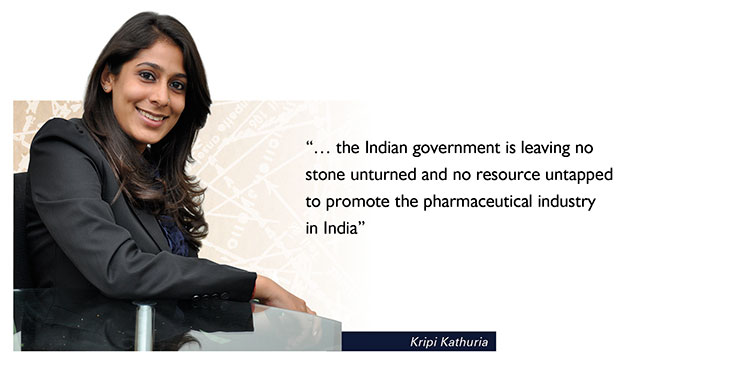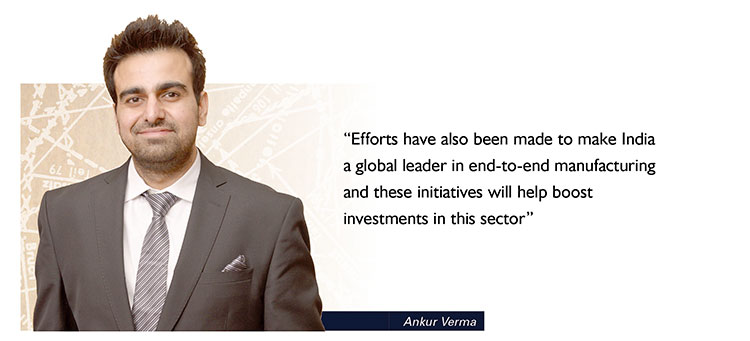In their article, Phoenix Legal’s Kripi Kathuria and Ankur Verma discuss why the pharmaceutical industry in India is attracting interest from investors worldwide, noting amongst other things “ever-increasing returns, lowering risk and anticipated multifold growth”.
The pharmaceutical industry in India has grown steadily into an enormous industry with a number of important turning points. These turning points have typically stemmed from the various issues faced by the industry and have changed the nature and mechanisms of the industry, and to a large extent, the trends in the industry.
The industry was almost non-existent up until the 1970s. However today, India has gained vast importance and carved a niche for itself on the world map in the pharmaceutical domain and is one of the most attractive investment destinations in the world. With ever-increasing returns, lowering risk and anticipated multifold growth, investors are more interested in this industry than ever before.
India has become a prime destination for manufacture of branded, generic and branded generic medicines with a strong export element. While the industry was previously known for manufacturing generic drugs, the dynamics have now undergone a change. Presently, the Indian pharma industry stands diversified into various spheres of activities including research and development (R&D), manufacturing of branded, generic and branded generic drugs, laboratory testing and clinical research.
Liberalised FDI regime – boosting the growth of the pharmaceutical sector
The involvement of the Indian government in the growth of the pharmaceutical industry has been immense with an aim to make India a global leader in end-to-end manufacturing. The government has made umpteen efforts to stimulate organised growth of the industry, which include notification of 100 percent Foreign Direct Investment (FDI) in 2014 in the pharmaceutical sector, and greenfield and brownfield projects by the Department of Industrial Policy and Promotion under the Ministry of Commerce & Industry.
Currently, in greenfield projects, FDI of up to 100 percent is permitted under the automatic route and in brownfield projects, FDI of up to 100 percent is permitted with approval from the Foreign Investment Promotion Board (FIPB). Over the last few years, it has been observed that the approach of the FIPB towards pharmaceutical proposals has been forward looking and positive as it has not been holding back approvals to brownfield projects, except where there exist glaring discrepancies and concerns.
Such an approach has acted as a catalyst for foreign investment to trickle into the country, thereby allowing local manufacturers to prosper and boost their businesses.
Pharma sector – deal table
The last few years saw multifold increase in foreign investment in the pharmaceutical sector of a total of US$50 billion. The government authorities such as the Competition Commission of India (CCI) and Securities Exchange Board of India (SEBI) have encouraged foreign companies to enter the Indian market by streamlining the regulatory procedure and granting approvals without unnecessary delay. The most notable M&A deals in the pharma sector during the previous financial year include the acquisition of a 100 percent stake in Ranbaxy Laboratories by Sun Pharmaceuticals and the acquisition of Famy Care Ltd’s (Famy Care) female healthcare business by Mylan Inc. (Mylan). Brief summary of the said transactions and role of the Indian regulatory authorities is explained below:
1. Sun Pharmaceutical Industries – Ranbaxy Laboratories
Sun Pharmaceutical Industries acquired 100 percent stake in Ranbaxy Laboratories for a whopping figure of US$3,200 million. The transaction involved purchase of 0.8 shares of Sun Pharmaceutical having face value of INR 1/- each by the shareholders of Ranbaxy for each share of INR 5/- held by them in Ranbaxy. Like other subsidiaries of Ranbaxy, Ranbaxy (Netherlands) BV, which is a wholly owned subsidiary of Ranbaxy, also became a subsidiary of Sun Pharmaceutical pursuant to the transaction.
After completion of the transaction, Daiichi Sankyo Co Ltd (which owned approximately 63.41 percent of the shares of Ranbaxy) became the second largest shareholder in Sun Pharmaceutical with a stake of nine percent, while the shareholding of the promoter group of Sun Pharmaceutical was reduced to 55 percent. The public shareholders of Ranbaxy retained approximately 14 percent and existing public shareholders of Sun Pharmaceutical retained approximately 22 percent in Sun Pharmaceutical.
The acquisition had to undergo some major hurdles which involved the approval of regulatory government authorities including SEBI and adherence to various guidelines, more specifically the SEBI (Prohibition of Insider Trading) Regulations, 1992 and the SEBI (Substantial Acquisition of Shares and Takeover) Regulations, 2011. In addition to the approval of SEBI, Sun Pharmaceuticals was also required to acquire the approval of the CCI. The major concerns of the CCI with the transaction appeared to be the combined entity’s highly concentrated market in its portfolio of certain drug formulations. The CCI after due deliberations was of the opinion that the acquisition is likely to have an appreciable adverse effect on competition in India for seven formulations of drugs and thereby approved the transaction with certain conditions, such as divestment of the aforesaid seven brands within a period of six months from the date of the order.
 |
2. Mylan Inc. – Famy Care Limited
Major US-based pharmaceuticals company Mylan signed a deal to acquire the female healthcare businesses Famy Care, a specialty women’s healthcare company, for US$750 million in cash and additional contingent payments of up to US$50 million.
Mylan and Famy Care had an exclusive partnership dating to 2008 under which Famy Care developed and supplied oral contraceptive products to Mylan for distribution to customers in the US and certain other markets. In the US, Famy Care and Mylan had a portfolio of 12 approved products.
Under the deal, signed through Mylan’s Indian subsidiary, Mylan Laboratories Ltd (Mylan India), Famy Care spun off its women’s healthcare business under a court-approved scheme of demerger. Post the demerger, Mylan India acquired the shares of the new company. Under the terms of the transaction, which had been unanimously approved by the board of directors of both the companies, Mylan India acquired certain female reproductive healthcare businesses from Famy Care for US$750 million in cash at closing, subject to certain adjustments, plus an additional payment of up to US$50 million, contingent upon achievement of certain development and regulatory milestones.
Mylan India had sought the approval of the FIPB for issuance of 17,07,330 equity shares of face value of INR 10 to the existing shareholders of Famy Care, pursuant to a demerger. Based on the recommendations of the meeting of the FIPB, Mylan India’s proposal was recommended for approval to the Cabinet Committee on Economic Affairs (CCEA), one of the standing committees of the cabinet constituted by the government of India. The CCEA on the recommendations of the FIPB cleared the FDI proposal of Mylan India entailing a capital inflow of INR 4,960 crores. Pursuant to the approvals, Mylan India acquired the entire shareholding, comprising of 17,07,330 equity shares and acquired the women’s healthcare business of Famy Care.
Growth potential of the pharma sector
Apart from the steps taken by regulatory authorities, India’s pharmaceutical sector is also strongly benefitting from a favourable macroeconomic environment and the increasing purchasing power of individuals. The sector has witnessed large acquisition activities and innovation in healthcare products and services which have attributed to its rapid growth. Urban India always had ready access to the products manufactured by pharma players, but the rural markets are also now beginning to gain due to these products. Although a large proportion of the rural market still remains untapped, it represents a significant growth for pharmaceutical companies.
As already mentioned, the Indian government is leaving no stone unturned and no resource untapped to promote the pharmaceutical industry in India. In the pursuit of achieving global leadership in this sector, the government unveiled its Pharma Vision 2020, which provides for reduction in period of approval for new facilities. Efforts have also been made to make India a global leader in end-to-end manufacturing and these initiatives will help boost investment in this sector. The Indian pharmaceutical industry is projected to surpass other leading emerging economies in the 21st century as a global centre for end-to-end drug discovery and innovation.
 |
kripi.kathuria@phoenixlegal.in
ankur.verma@phoenixlegal.in
www.phoenixlegal.in















